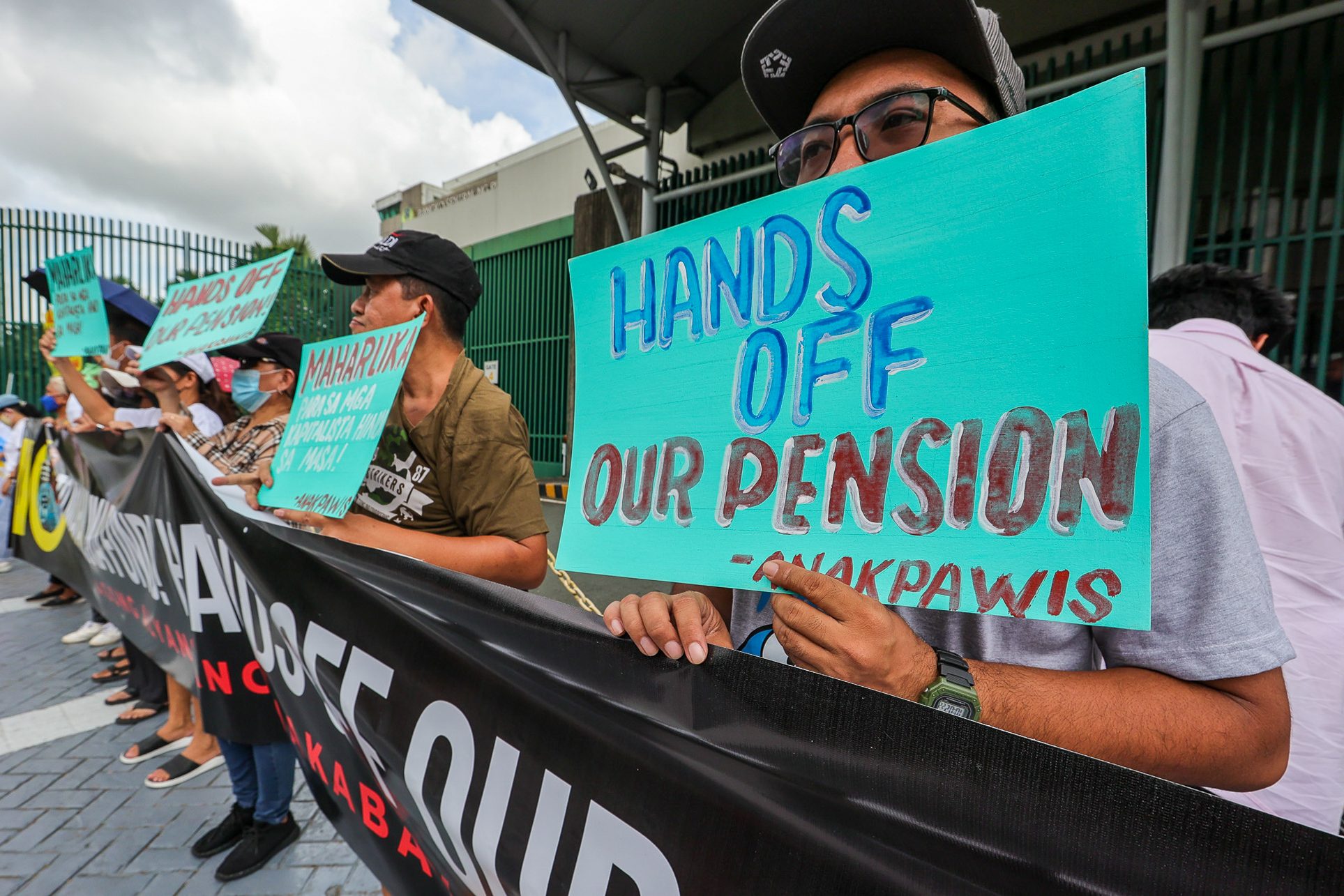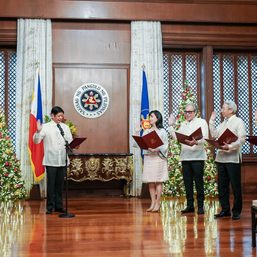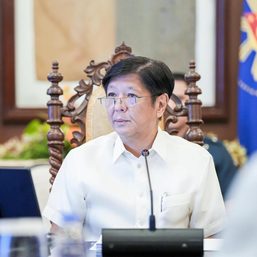SUMMARY
This is AI generated summarization, which may have errors. For context, always refer to the full article.

MANILA, Philippines – The two chambers of Congress on Wednesday, May 31, separately approved the final version of the proposed sovereign wealth fund that now only needs President Ferdinand Marcos Jr.’s signature before it becomes a law.
The Senate first ratified the bicameral conference that reconciled clashing provisions of the Maharlika Investment Fund (MIF) bills that had hurdled their respective chambers. The House, in turn, adopted Senate’s version of the bill.
“On behalf of the Congress panel, we accept the Senate version in principle, subject to style,” said Manila 5th District Representative Irwin Tieng, House banks committee chairman.

The controversial message was passed amid loud opposition from critics, who cited corruption and investment risks, economic challenges, and the bill’s railroading.
The priority measure of the Marcos administration is expected to be front and center when the President delivers his second State of the Nation Address (SONA) in July, a time when the chief executive touts key accomplishments under his administration.
Near-unanimous support
June 2 is the scheduled sine die or indefinite adjournment of Congress, so both chambers raced against time to pass the proposal before the deadline.
The House approved its version of the measure, House Bill No. 6608, in December, at a record speed of only 17 days after the measure was introduced in the chamber.
The proposal faced more intense scrutiny in the Senate when it began to tackle the bill in February, but the chamber’s supermajority bloc ultimately delivered the votes, after a marathon plenary session that resulted in the passage of Senate Bill No. 2020 past 2 am on Wednesday, May 31.
Hours later, representatives from both chambers met in Makati to discuss contrasting provisions of the bills. With time running out, the House merely adopted the Senate’s version.
In total, only six out of 314 House members and one out of 24 senators voted to reject the proposal.
What it contains
The MIF is a proposed sovereign wealth fund that will be used by the government to invest in key sectors like domestic and foreign corporate bonds, commercial real estate, and infrastructure projects – to help fund the country’s priority programs.
Caving in to critics’ outcry, proponents amended the bill to explicitly prohibit the Social Security System, Government Service Insurance System, Philippine Health Insurance Corporation, Pag-IBIG, Overseas Workers Welfare Administration, Philippine Veterans Affairs Office, and Home Development Mutual Fund from investing in the MIF, whether on a mandatory or voluntary basis.
Another major feature of the Senate version is that the Bangko Sentral ng Pilipinas will contribute 100% of its remittances during the first and second year of the Maharlika fund’s establishment rather than being required to continue remitting its dividends until the national government’s P50 billion contribution is fully paid up. This would limit the impact to the BSP’s capital build-up.
Investments from these agencies were a major cause for concern among some lawmakers and pensioners.
The proposed Maharlika fund has sparked public outcry from pensioners, and faced a legal challenge before the Supreme Court. Critics questioned the timing of the bill as there are more pressing issues the government needs to focus on like addressing high inflation.
The seed capital of MIF will come from the Land Bank of the Philippines (P50 billion), Development Bank of the Philippines (P25 billion), and the national government (P50 billion). Landbank and DBP will fully pay for their contribution upon the creation of the fund, while the government’s P50 billion is only subscribed, which means they can pay any time.
The Senate version of the bill provides that bonds issued under the proposed measure would not be guaranteed by the government – a safeguard pitched by Senator Mark Villar, to prevent a repeat of Malaysia’s multibillion-dollar 1MDB scandal.
Villar said that any bonds or debt instruments issued by the Maharlika Investment Corporation (MIC) would be secured by its own assets, meaning the government would not be liable for whatever happens to the MIF.
The senator also believes that the yield of the MIC will be higher than government treasury bills, which are sometimes used as the basis for the risk-free rate of investment.
Prior to its passage, Senate Minority Leader Koko Pimentel raised transparency concerns over the MIC since it would decide on “mega infrastructure” projects of the government without the usual public scrutiny during deliberations at the Senate and the House of Representatives.

Explaining her “No” vote, opposition senator Risa Hontiveros said on Wednesday that she believes that it was not the right time for a sovereign wealth fund.
“I want to reiterate, however, that I fully agree with the Sponsor’s belief that a new kind of public financing is needed. We need to learn how to leverage the capital resources that we have so that we could do more with the little that we have,” she said.
“My belief is that the idea of a sovereign wealth fund will make sense sometime in the medium term, perhaps when we have the surpluses. It’s ahead of it’s time, so to speak,” Hontiveros added.
Meanwhile, Senator Grace Poe, who voted “Yes” to the Maharlika bill, said that the bill passed was an “enhanced, better version with adequate safeguards to ensure effective and transparent governance of funds.”
“As an added protection of the fund, we increased the fines, imposed imprisonment and included perpetual disqualification from public office as part of penalties against officials who will tolerate graft, act as intermediaries for corrupt acts, and those who will be found erring during fund audits,” she said.
The MIC will be led by a nine-member board of directors. The board has the power to “direct the management and operations, and administration of the MIC.” Under the proposed measure, the following will be the composition of the board:
- Finance secretary (chairperson)
- Chief executive officer of the MIC (vice-chairperson with a three-year term)
- President of Landbank
- President of DBP
- Two regular directors (three-year term)
- Three independent directors from the private sector (one-year term)
– with reports from Lance Yu/Rappler.com
Add a comment
How does this make you feel?

![[Just Saying] Demonizing divorce and the mockery of our Constitution](https://www.rappler.com/tachyon/2024/06/TL-Demonizing-divorce-mocking-constitution-June-6-2024.jpg?resize=257%2C257&crop=265px%2C0px%2C720px%2C720px)














![[OPINION] Power of mimicry: How human rights are covertly undermined in PH](https://www.rappler.com/tachyon/2024/06/duterte-marcos-human-rights.jpg?resize=257%2C257&crop_strategy=attention)



There are no comments yet. Add your comment to start the conversation.